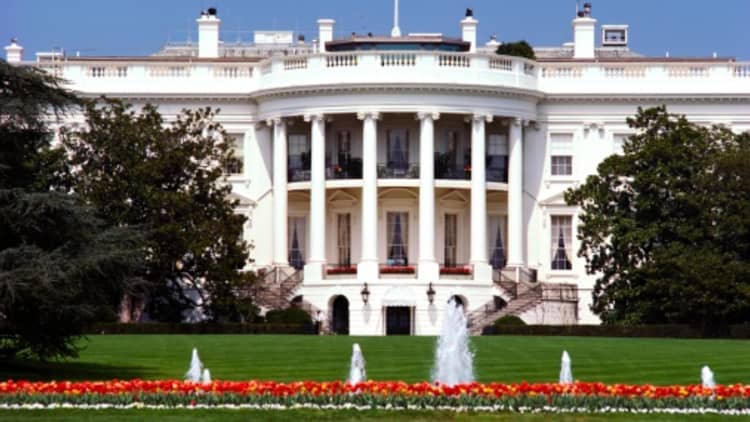
The White House opposes a Senate proposal to block President Donald Trump's deal to revive Chinese telecommunications company ZTE.
The Trump administration is working with Senate leaders to change language included in a defense authorization bill the chamber is set to pass this week, White House legislative affairs director Marc Short said Wednesday. The House has already passed a separate defense bill without the ZTE language. The administration prefers that legislation, according to Short.
The White House could push for the revision later in the legislative process when the two chambers try to reconcile their proposals. "The president believes that China has been instrumental in helping us to get to this point on North Korea," Short said.
The effort to revise the language sets up another possible disagreement between Trump and the Republicans in the Senate supporting one of the party's few efforts to check the president. Sen. Bob Corker, R-Tenn., already expressed frustration this week after his party blocked him from advancing a measure to check Trump's ability to impose tariffs on imports.
The Wall Street Journal first reported the White House's plan to oppose the language.
A ban on buying U.S.-made parts — prompted by ZTE selling equipment to Iran and North Korea in violation of American sanctions — threatened the company's survival. Trump then decided to help ZTE, saying he did so as a personal favor to Chinese President Xi Jinping.
Under the deal with the Commerce Department, ZTE has agreed to pay a $1 billion fine and change its leadership, among other provisions. The U.S. has not officially lifted the ban yet. ZTE wants to resume operations as soon as possible.
The deal give the U.S. "complete oversight" of ZTE's activity "without undue harm to American suppliers and their workers," White House deputy press secretary Hogan Gidley said in a statement Wednesday. He added that the Trump administration will work with Congress to make sure the final defense bill "respects the separation of powers."
Senators included the language to stop the ZTE deal in a widely supported defense bill which is expected to pass this week. The ZTE provision has drawn bipartisan support from lawmakers, who have warned that helping Chinese company carries national security risks.
Senators including Chris Van Hollen, D-Md., Tom Cotton, R-Ark., Marco Rubio, R-Fla., and Senate Minority Leader Chuck Schumer, D-N.Y., have backed the ZTE amendment.
In a statement Wednesday, Schumer said "both parties in Congress must be resolute in blocking the president's bad, pro-China ZTE deal."
"Protecting America's national and economic security is paramount and any deal that jeopardizes them should be stopped in its tracks as both parties have already agreed," he added. "We cannot back off on an issue so vital to America's national and economic security."
On Tuesday, Corker suggested he did not think Trump would try to stop the Senate measure, according to the Journal. The senator said, "I think [Trump] did what he did for the Chinese leader but he doesn't really care what Congress does."
— CNBC's Eamon Javers contributed to this report.


